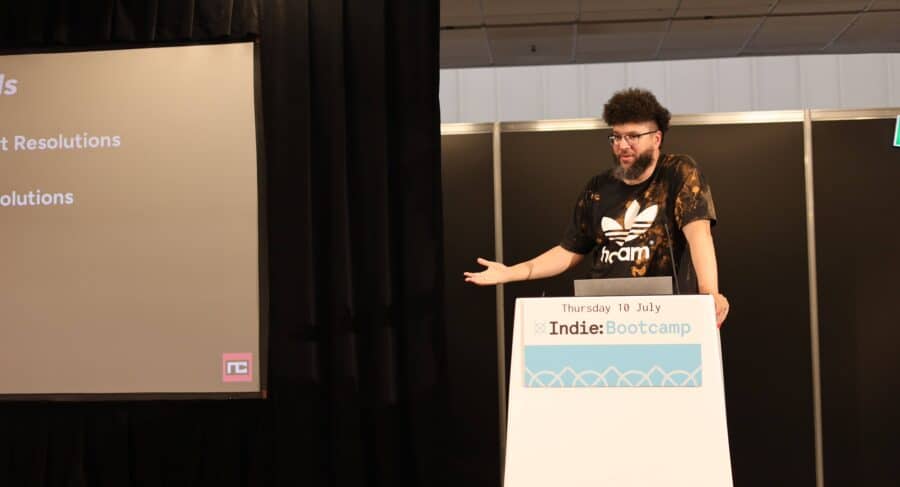The state of the video games, animation, and VFX industries
By MetStudios
24 April 2025
The creative industries are booming – and they’re only set to grow stronger in the years ahead.
Boasting a global revenue of $27.97 billion for online gaming, the video games sector is reaching new heights. Meanwhile, the animation market is expected to surpass $600 billion by 2030, and visual effects (VFX) are projected to reach $19.46 billion.
When it comes to job prospects, there’s never been a better time to launch your creative career. In the UK, employment in the screen sector grew four times faster than the overall economy between 2011 and 2022, adding 100,000 new roles. By 2022, these industries supported a staggering 325,000 jobs.
This article takes a closer look at the current landscape of video games, animation, and VFX, from emerging roles to consumer habits.
A thriving job market
According to TIGA’S Making Games in the UK 2024 report, employment in the video games business has grown by an average of 9.5% every year from December 2014 to May 2024. Today, over 28,500 people make games professionally in the UK, in areas like programming, software development, marketing, graphic design, and much more.
Animation and VFX companies span the film, TV, and games sectors, offering diverse opportunities. In fact, VFX is the fastest-growing part of the UK film industry, employing around 10,680 people. Major studios include:
- Framestore (Barbie, Paddington, The Little Mermaid)
- Double Negative (Dune, Interstellar, The Last of Us)
- Cinesite (Avengers: Infinity War, Spectre, Fantastic Beasts)
- MPC (The Lion King, House of the Dragon)
On average, people working in the screen industries earn £10,000 more each year than the average UK salary. Roles in animation and VFX can offer even higher earnings. The 2024 She Drew That report examines the average salaries in these industries in the UK, finding that the average salary for 3D animation is almost £50,000, while a senior role can get you up to £60,000. In VFX, the average salary is £54,000, with senior roles earning up to £68,000.
The growth of artificial intelligence
Technology is reshaping how the work itself is done, with artificial intelligence (AI) rapidly transforming every corner of the creative industries. In video games, developers use it for aspects such as motion capture, lighting and texturing, and storyboarding.
A 2024 report commissioned by The Animators Guild and others highlights just how quickly the shift is happening. Of all the industries they looked at, the games industry had the highest proportion of ‘early adopter’ firms. The report states that nearly 90% of gaming companies have already implemented or are actively exploring generative AI tools.
At MetStudios, we’re at the forefront of this evolving industry, equipping you with the tools and knowledge to launch your career. In this session, our Dean of Games and Creative Technology, Nick Rodriguez, takes a closer look at how AI can be used to develop game concepts.
Consumer behaviour and trends: Q&A
- How many people play video games?
Well, in 2023, there were 10.84 million online gamers in the UK. This figure is expected to rise to a whopping 11.56 million in 2027.
- How do they play?
Online gaming is the most common way to play, with 83% of gamers aged 16-24 regularly playing online. Mobile phones have become a key platform, with 34% of gamers identifying them as their primary gaming device.
Gaming is also frequently combined with other activities – 75% of gamers play while watching TV or video content.
- What games are they playing?
According to the Global Indie Games Market Report 2024, indie games are more popular than ever. Indie titles are now matching the revenue of major AAA releases, and the sector has grown steadily each year since 2020, even as the broader games industry has slowed down.
In a recent MetStudios masterclass, independent game designer Nathalie Lawhead highlighted the value of creativity and experimentation. They argued that success shouldn’t be measured solely by financial return, but by the artistic impact of the game. As AAA titles increasingly lean toward familiar formulas and narratives, many players are turning to indie games for more original and meaningful experiences.
Equality, diversity, and inclusion
It’s important to consider not just what games people are playing, but who is playing them.
Women now make up 45% of gamers globally, yet they represent only 23% of the industry workforce. Even more striking, just 6% of protagonists in best-selling video games between 1985 and 2022 were female.
In the VFX industry, women account for 27% of the workforce. While production departments are majority female (60%), areas like IT and R&D remain male-dominated. Women make up just 11.1% to 16.5% of the highest earners in the VFX sector.
Addressing skills gaps
Despite their growth, the screen industries face significant skills shortages. According to TIGA’s 2024 Skills Report, half of UK games companies surveyed struggled to fill vacancies. Among those, 69% cited a lack of qualified applicants as the main issue. These were the most difficult roles to recruit for:
- Art (41%)
- Programming (30%)
- Design (11%)
A WorldSkills 2024 report noted that while the UK is a global leader in film, TV, and video games production, many young people still don’t know how to begin a career in these industries.
The report highlights the importance of vocational and technical training, better careers guidance, and stronger partnerships between educators and industry. It also points to innovative higher education programmes as a key solution for closing the skills gap and preparing the next generation of creative professionals.
Looking to break into games, animation or VFX?
The screen industries are constantly evolving, and the demand for skilled, creative talent has never been higher. At MetStudios, our specialist courses are designed to help you build the knowledge, experience, and confidence you need to get started.
Your future in games, animation, or VFX starts here – explore our courses and turn your passion into a profession.













